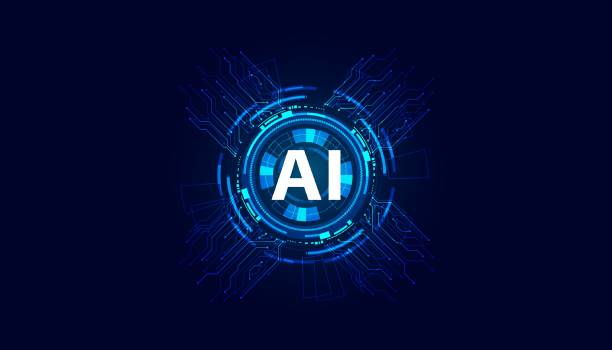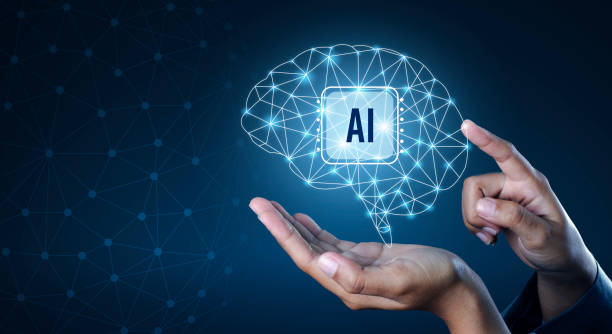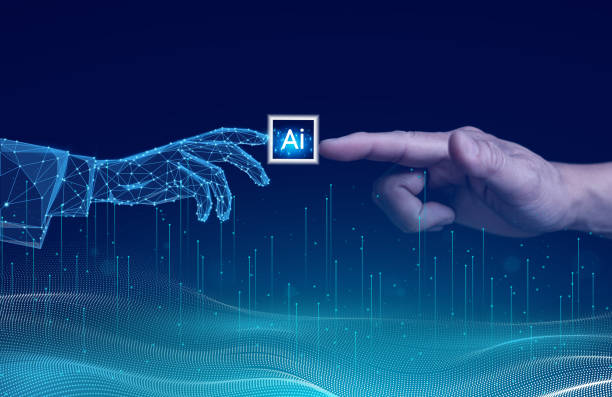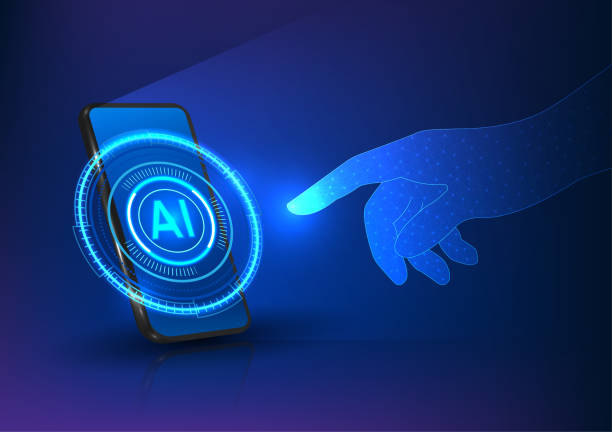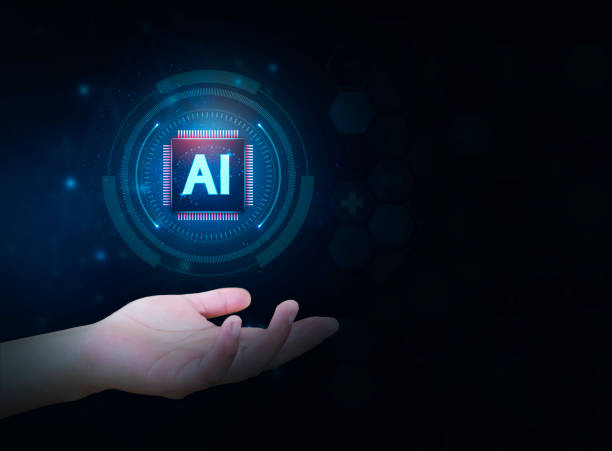What is an AI Assistant? (Definition, History, and Basic Concepts)
What is an AI Assistant?
#AI_Assistant refers to software or a program that uses artificial intelligence (AI) to perform tasks, provide information, or assist users in various fields.
These assistants can exist in various forms, such as chatbots, voice assistants, or standalone applications.
The main goal of an AI assistant is to simplify tasks, increase productivity, and provide a more efficient and personalized experience for users.
The history of AI assistants dates back decades, but recent advances in machine learning, natural language processing (NLP), and computing power have elevated these assistants to a new level of capabilities.
Significant milestones in this field include the development of ELIZA in the 1960s, which was an early natural language processing program.
Then, in later decades, systems like Siri and Alexa were introduced, which could support more complex voice interactions.
Basic concepts include Machine Learning, which enables the AI assistant to learn from data and improve its performance.
Natural Language Processing (NLP) helps the assistant understand and generate human language.
Natural Language Understanding (NLU) allows the assistant to understand the meaning behind sentences, and Natural Language Generation (NLG) enables it to provide appropriate and natural responses.
Deep Learning is also a subset of machine learning that uses deep neural networks to analyze complex data.
In short, an AI assistant is a powerful tool that, by leveraging artificial intelligence, helps users perform their tasks more efficiently and intelligently.
This technology is still evolving and is expected to play a more important role in daily life and businesses in the future.
AI assistants have high potential to change the way we interact with technology.
Are you dissatisfied with the low sales of your online store?
Rasaweb is your solution to having a professional and high-selling online store.
✅ Significant increase in sales and revenue
✅ Easy and enjoyable shopping experience for customers
⚡ Get a free consultation from Rasaweb right now!
Types of AI Assistants (Based on Application, Platform, and Technology)
Click here to preview your posts with PRO themes ››
Types of AI Assistants
AI assistants can be categorized based on various criteria, some of the most important of which are mentioned below:
Based on application:
- Personal Virtual Assistants such as Siri, Google Assistant, and Alexa that are designed to perform everyday tasks such as setting reminders, answering questions, playing music, and controlling smart home devices.
- Customer Service Assistants that are used on websites and applications to answer customer questions, solve problems, and provide online support.
Chatbots are an example of this type of assistant. - Enterprise Assistants that are used to help employees perform work tasks, manage information, and improve productivity in organizations.
- Educational Assistants that help students in learning materials, doing assignments, and accessing educational resources.
Based on platform:
- Voice Assistants that interact with users through voice and are usually found in smart devices such as smart speakers and mobile phones.
- Text Assistants that interact with users through text and are used on websites, applications, and messengers.
- Visual Assistants that interact with users through images and videos and can be used in areas such as facial recognition and medical image analysis.
Based on technology:
- Rule-Based Assistants that use a set of pre-defined rules to answer questions and perform tasks.
- Machine Learning-Based Assistants that use machine learning algorithms to learn from data and improve their performance.
These types of assistants are usually capable of understanding natural language and providing more complex responses. - Hybrid Assistants that use a combination of rules and machine learning to provide the best user experience.
Choosing the right type of AI assistant depends on the specific needs and goals of the user or organization.
With the ever-increasing advancement of technology, it is expected that more complex and powerful AI assistants will be developed in the future.
Click here to preview your posts with PRO themes ››
Amazing Applications of AI Assistants in Daily Life and Businesses
Amazing Applications of AI Assistants
AI assistants are rapidly penetrating various aspects of daily life and businesses, offering a variety of applications.
Below are some of these applications:
In daily life:
- Managing Schedules and Reminders: AI assistants can help you set reminders, manage your calendar, and plan your day.
- Accessing Information: Using an AI assistant, you can quickly access the information you need, including news, weather, traffic information, and more.
- Controlling Smart Home Devices: AI assistants can be used to control smart home devices such as lights, thermostats, and door locks.
- Entertainment: AI assistants can play music, run podcasts, and tell stories.
- Language Translation: Using an AI assistant, you can translate texts and conversations into different languages.
In businesses:
- Customer Support: AI assistants can be used to answer customer questions, solve problems, and provide online support 24/7.
- Marketing and Sales: AI assistants can be used to identify potential customers, personalize marketing messages, and increase sales.
- Human Resources Management: AI assistants can be used to hire employees, train and develop them, and manage performance.
- Task Automation: AI assistants can be used to automate repetitive and time-consuming tasks such as data entry and report generation.
- Data Analysis: AI assistants can be used to analyze large data and identify important patterns and trends.
AI assistants help improve the quality of life and increase productivity in businesses by providing innovative and efficient solutions.
This technology is still evolving and is expected to find more applications in the future. For example, in the medical field, AI assistants can help doctors diagnose diseases and provide appropriate treatments.
| Application | Description |
|---|---|
| Customer Support | Answering questions, solving problems, providing online support |
| Marketing and Sales | Identifying potential customers, personalizing messages |
| Human Resources Management | Hiring, training, performance management |
| Task Automation | Automating repetitive tasks |
Advantages and Disadvantages of Using AI Assistants; Is It Worth It?
Advantages and Disadvantages of Using AI Assistants
Using AI assistants has its own advantages and disadvantages, which are mentioned below:
Advantages:
- Increased Productivity: AI assistants can automate repetitive and time-consuming tasks, allowing you to focus on more important tasks.
- Easy Access to Information: Using an AI assistant, you can quickly access the information you need.
- Personalization: By learning your behavioral patterns, an AI assistant can provide a personalized experience.
- 24/7 Support: AI assistants can answer your questions and solve your problems 24 hours a day, seven days a week.
- Cost Reduction: Using an AI assistant, you can reduce the costs associated with human resources and other resources.
Disadvantages:
- Language Limitations: AI assistants may have limitations in understanding and responding to different languages.
- Privacy Concerns: Using an AI assistant may raise concerns about privacy and data security.
- Internet Dependency: You need an internet connection to use an AI assistant.
- Potential Errors: AI assistants may make mistakes in some cases and provide incorrect answers.
- Implementation Cost: Implementing and maintaining an AI assistant can be costly.
Is it worth it?
The answer to this question depends on your needs and goals.
If you are looking for increased productivity, easy access to information, and 24/7 support, using an AI assistant may be a good option for you.
However, you should also be aware of its disadvantages and take the necessary measures to reduce potential risks.
For example, in small businesses, using a smart virtual assistant can help better manage time and reduce costs.
On the other hand, in large organizations, AI assistants can play an important role in customer support and process automation.
Is your company website professional and trustworthy enough? Create an online presence that reflects your credibility and attracts more customers with a specialized corporate website design by Rasaweb.
✅ Creating a powerful and professional image of your brand
✅ Turning visitors into real customers
⚡ Get a free consultation now!
Current Challenges and Limitations of AI Assistants (Ethical, Security, Technical)
Current Challenges and Limitations of AI Assistants
AI assistants, despite their remarkable advancements, still face numerous challenges and limitations, which are mentioned below:
Ethical Challenges:
- Discrimination: AI assistants may provide discriminatory responses due to the presence of discrimination in training data.
- Transparency: AI assistant decisions may be opaque and the reasons for them may not be clear.
- Accountability: In the event of an error or damage caused by an AI assistant, it is difficult to determine responsibility.
- Privacy: AI assistants have access to a large amount of personal data, and maintaining user privacy is of utmost importance.
Security Challenges:
- Cyber Attacks: AI assistants can be targeted by cyber attacks and put users’ sensitive information at risk.
- Identity Theft: AI assistants can be used for identity theft and illegal activities.
- System Intrusion: AI assistants can be used to intrude into computer systems and networks.
Technical Challenges:
- Natural Language Understanding: AI assistants still face difficulties in understanding natural language and answering complex questions.
- Continuous Learning: AI assistants need continuous learning to improve their performance, and this process can be time-consuming and costly.
- Scalability: Scaling AI assistants to meet the needs of a large number of users is a technical challenge.
- Adaptability: AI assistants should be able to adapt to different environments and conditions.
To overcome these challenges and limitations, more research and development are needed in various fields of artificial intelligence, ethics, and cybersecurity.
Also, it is necessary to develop appropriate laws and regulations for the use of AI assistants to protect the rights of users and society.
The Future of AI Assistants (Trends, Predictions, and Potential Impacts)
The Future of AI Assistants
The future of AI assistants looks very bright and promising.
With the ever-increasing advancements in various fields of artificial intelligence, it is expected that these assistants will play a more important role in daily life and businesses in the future.
Trends:
- Increased Language Capabilities: AI assistants will be able to understand and respond to natural language more accurately and fluently in the future.
- More Personalization: By learning user behavioral patterns, AI assistants will provide a more personalized experience.
- Integration with Other Technologies: AI assistants will be integrated with other technologies such as the Internet of Things (IoT), Augmented Reality (AR), and Virtual Reality (VR) and will offer new applications.
- Increased Autonomy: AI assistants will be able to perform more complex tasks and make independent decisions in the future.
- Expansion of Applications: AI assistants will find more applications in various fields such as medicine, education, transportation, and more.
Predictions:
- By 2025, more than 80% of customer interactions with businesses will be through AI assistants.
- AI assistants will play an important role in the development of smart cities and smart homes.
- AI assistants will help doctors diagnose diseases and provide appropriate treatments.
- AI assistants will help students learn materials and do assignments.
Potential Impacts:
- Increased Productivity: By automating tasks and providing fast and accurate information, AI assistants will help increase productivity in daily life and businesses.
- Improved Quality of Life: By providing personalized services and helping individuals perform everyday tasks, AI assistants will help improve the quality of life.
- Creating New Job Opportunities: The development and maintenance of AI assistants will create new job opportunities.
- Changing the Nature of Work: With the automation of tasks, the nature of work will change and individuals will need new skills.
Given these trends, predictions, and potential impacts, it can be said that AI assistants have a bright future and will play an important role in transforming society.
How to Choose a Suitable AI Assistant for Your Needs?
How to Choose a Suitable AI Assistant?
Choosing a suitable AI assistant for your needs requires careful consideration and consideration of various factors.
Below are some of the most important of these factors:
- Determine Needs: First, you must accurately determine your needs.
What do you want to use the AI assistant for? What tasks do you want to assign to it? What features are important to you? - Review Types of Assistants: There are different types of AI assistants, each with its own features and capabilities.
Before choosing, review the different types of assistants and see which one best fits your needs. - Compare Features: Compare the different features of the assistants with each other.
Pay attention to factors such as accuracy, speed, language capabilities, personalization features, security, and price. - Read User Reviews: Read reviews from other users about different assistants.
These reviews can help you understand the strengths and weaknesses of each assistant. - Free Trial: Many companies provide the ability to try their assistants for free.
Take advantage of this opportunity and try different assistants before you buy. - Consider Budget: The price of AI assistants is different.
Before choosing, consider your budget and choose an assistant that is compatible with your budget. - Check Compatibility: Make sure the assistant you choose is compatible with your devices and systems.
- Pay Attention to Security: The security of your data is of utmost importance.
Before choosing, make sure that the assistant you choose uses appropriate security protocols.
By considering these factors, you can choose a suitable AI assistant for your needs and benefit from its advantages.
For example, if you are looking for an assistant to manage your daily tasks, a personal virtual assistant may be a good option.
If you are looking for an assistant for customer support, a chatbot may be a good option.
| Feature | Importance | Description |
|---|---|---|
| Accuracy | High | The assistant should provide accurate and correct answers. |
| Speed | Medium | The assistant should respond quickly to questions and requests. |
| Language Capabilities | High | The assistant should understand natural language well and provide fluent and natural responses. |
| Personalization Features | Medium | The assistant should provide personalization features for users. |
| Security | High | The assistant should protect user data. |
Introducing the Best AI Assistants Available in the Iranian and Global Markets
Introducing the Best AI Assistants
Currently, there are numerous AI assistants in the Iranian and global markets, each offering its own features and capabilities.
Below are some of the best and most popular of these assistants:
Global Assistants:
- Google Assistant Google Assistant : A powerful voice assistant that can be used on various devices such as mobile phones, smart speakers, and cars.
Google Assistant offers a variety of capabilities such as answering questions, playing music, setting reminders, and controlling smart home devices. - Amazon Alexa Amazon Alexa : Another voice assistant that can be used on Echo smart speakers and other Amazon devices.
Alexa has similar capabilities to Google Assistant and can also be used to shop from Amazon and control smart home devices. - Apple Siri Apple Siri : A voice assistant that can be used on Apple devices such as iPhone, iPad, and Mac.
Siri offers a variety of capabilities such as answering questions, sending messages, making calls, and controlling smart home devices. - Microsoft Cortana Microsoft Cortana : A voice assistant that can be used on Windows devices.
Cortana has similar capabilities to other voice assistants and can also be used to manage email and calendar.
Iranian Assistants:
- Salam Voice Assistant: A Persian-speaking voice assistant developed by the Moj Negar knowledge-based company.
This assistant offers a variety of capabilities such as answering questions, playing music, reading news, and weather information. - Hamrah Aval Response Bot: A response bot that can be used in the Hamrah Man application.
This bot can answer users’ questions about Hamrah Aval services and products.
Choosing the best AI assistant depends on your needs and preferences.
If you are looking for a powerful voice assistant, Google Assistant or Alexa may be good options.
If you use Apple devices, Siri is a good option.
And if you are looking for a Persian-speaking assistant, Salam Voice Assistant may be a good option. Also, keep in mind that some assistants may perform better in Persian.
Are you losing customers due to the outdated appearance or slow speed of your online store? The Rasaweb expert team solves these problems by designing a professional online store!
✅ Increase customer trust and brand credibility
✅ Amazing speed and excellent user experience
Get a free consultation with Rasaweb now ⚡
Important Tips for Maintaining Privacy and Security When Using AI Assistants
Important Tips for Maintaining Privacy and Security
Using AI assistants, despite their many advantages, can raise concerns about privacy and security.
To reduce these concerns, it is essential to follow these tips:
- Review Privacy Settings: Carefully review the privacy settings of your AI assistant and activate the options that meet your needs.
For example, you can restrict the AI assistant’s access to your location information, contacts, and calendar. - Disable Microphone: When not using the AI assistant, disable its microphone to prevent unwanted recording of sound.
- Check Activity History: Regularly check your AI assistant’s activity history and delete information you do not want to be saved.
- Use a Strong Password: Use a strong and unique password for your AI assistant account.
- Update Software: Regularly update your AI assistant software to benefit from the latest security patches.
- Be Careful About the Information You Share: Avoid sharing sensitive information such as credit card numbers and passwords with your AI assistant.
- Use Secure Networks: When using AI assistants on public Wi-Fi networks, use a VPN to protect your information.
- Educate Children: If your children use AI assistants, teach them how to use them safely and responsibly.
- Read the Privacy Policy: Carefully read the privacy policy of the AI assistant manufacturer to understand how your information is collected, used, and shared.
By following these tips, you can maintain your privacy and security when using AI assistants and benefit from the advantages of this technology without security concerns. Remember that AI assistants need information to be efficient, but you can protect your privacy by managing this information properly.
Will AI Assistants Replace Humans? Examining Social and Economic Impacts
Will AI Assistants Replace Humans?
One of the common questions about AI assistants is whether they will eventually replace humans? The answer to this question is complex and depends on various factors.
Below, we examine the social and economic impacts of AI assistants on jobs and the workforce:
Social Impacts:
- Job Displacement: AI assistants can automate some repetitive and routine tasks, leading to job displacement in some industries.
- Creating New Job Opportunities: At the same time, the development and maintenance of AI assistants will create new job opportunities in fields such as software development, data analysis, and artificial intelligence engineering.
- Changing the Nature of Work: With the automation of tasks, the nature of work will change and people will need new skills such as critical thinking, problem-solving, and creativity.
- Increased Inequality: If the skills needed to work with AI assistants are not available equitably, inequality in society may increase.
Economic Impacts:
- Increased Productivity: By automating tasks and providing fast and accurate information, AI assistants will help increase productivity in businesses.
- Cost Reduction: Using AI assistants can reduce the costs associated with human resources and other resources.
- Economic Growth: Increased productivity and reduced costs can lead to economic growth.
- Change in Wealth Distribution: If the economic benefits resulting from AI assistants are not distributed equitably, wealth may be concentrated in the hands of a few.
In general, AI assistants have the potential to create widespread changes in society and the economy.
To minimize negative impacts and maximize positive impacts, policymakers, businesses, and members of society need to work together to develop programs to train the workforce, support vulnerable people, and promote responsible innovation. Ultimately, success in this area requires a comprehensive and forward-looking approach that pays attention to the challenges and opportunities arising from AI assistants.
AI Assistant
Frequently Asked Questions
| Question | Answer |
|---|---|
| What is an AI Assistant? | An AI assistant is a software application that, using artificial intelligence, can perform various tasks for users, such as answering questions, setting reminders, playing music, and managing calendars. |
| What are some of the most well-known AI assistants? | Some of the most well-known AI assistants include Apple’s Siri, Google Assistant, Amazon’s Alexa, and Microsoft’s Cortana. |
| How does an AI assistant work? | These assistants use natural language processing (NLP) to understand voice or text commands from the user, and use machine learning to improve performance and personalize responses. |
| What are the main uses of an AI assistant? | The main uses include setting alarms and reminders, playing music and podcasts, answering general questions, sending messages, making calls, controlling smart home devices, and providing weather or traffic information. |
| Can AI assistants speak in different accents? | Yes, many modern AI assistants can recognize and produce speech with different accents and languages. |
| What are the differences between an AI assistant and a chatbot? | AI assistants are typically more comprehensive and can perform various tasks beyond answering text questions (such as controlling devices). Chatbots are mostly designed for text conversations on websites or messaging applications. |
| Is it safe to use an AI assistant? | Companies strive to ensure data security, but there are concerns about privacy and the storage of voice data. Users should review their privacy settings. |
| What will the future of AI assistants look like? | In the future, AI assistants are expected to be smarter, more predictive, and more integrable with daily life and other devices, and will be able to perform more complex tasks. |
| How can I activate an AI assistant? | They are usually pre-installed on smartphones and smart home devices. You can activate them by saying “Hey Siri”, “Ok Google” or “Alexa” and then giving your command. |
| Can an AI assistant help me learn? | Yes, it can help you learn by providing information, defining words, translating texts, and even solving math problems. It can also play educational podcasts for you. |
And other services of Rasa Web Advertising Agency in the field of advertising
Smart Social Media: An effective tool for increasing sales with the help of dedicated programming.
Smart Advertising Campaign: A new service for increasing digital branding by optimizing key pages.
Smart Content Strategy: A professional solution for increasing sales with a focus on SEO-oriented content strategy.
Smart Custom Software: A combination of creativity and technology for digital branding by customizing the user experience.
Smart Content Strategy: Designed for businesses looking to engage users through attractive user interface design.
And more than a hundred other services in the field of internet advertising, advertising consulting and organizational solutions
Internet Advertising | Advertising Strategy | Advertorials
Sources
What is artificial intelligence and what are its applications?
,Artificial intelligence is bigger than we thought
,


